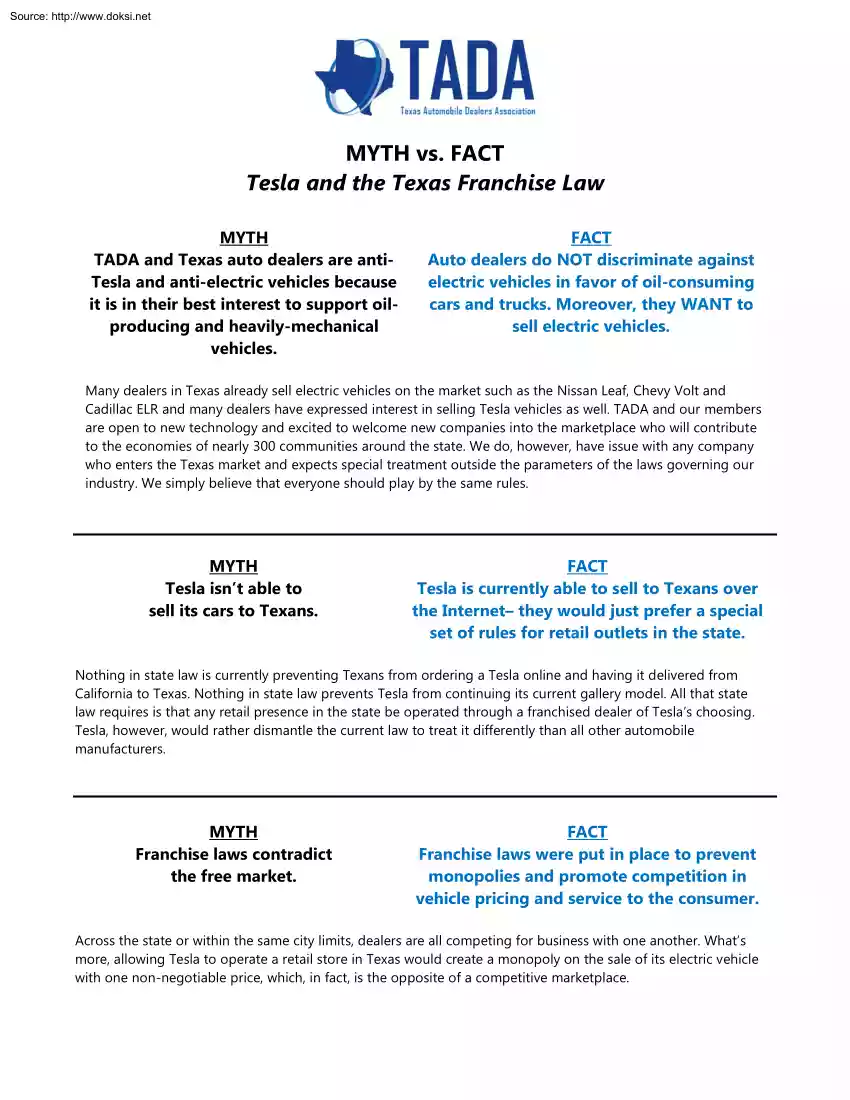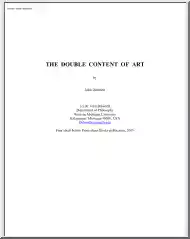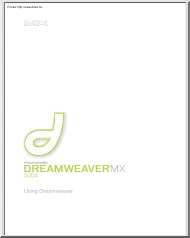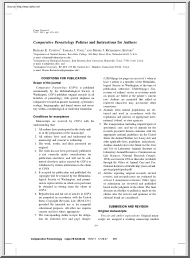Please log in to read this in our online viewer!

Please log in to read this in our online viewer!
No comments yet. You can be the first!
What did others read after this?
Content extract
Source: http://www.doksinet MYTH vs. FACT Tesla and the Texas Franchise Law MYTH TADA and Texas auto dealers are antiTesla and anti-electric vehicles because it is in their best interest to support oilproducing and heavily-mechanical vehicles. FACT Auto dealers do NOT discriminate against electric vehicles in favor of oil-consuming cars and trucks. Moreover, they WANT to sell electric vehicles. Many dealers in Texas already sell electric vehicles on the market such as the Nissan Leaf, Chevy Volt and Cadillac ELR and many dealers have expressed interest in selling Tesla vehicles as well. TADA and our members are open to new technology and excited to welcome new companies into the marketplace who will contribute to the economies of nearly 300 communities around the state. We do, however, have issue with any company who enters the Texas market and expects special treatment outside the parameters of the laws governing our industry. We simply believe that everyone should play by the same
rules MYTH Tesla isn’t able to sell its cars to Texans. FACT Tesla is currently able to sell to Texans over the Internet– they would just prefer a special set of rules for retail outlets in the state. Nothing in state law is currently preventing Texans from ordering a Tesla online and having it delivered from California to Texas. Nothing in state law prevents Tesla from continuing its current gallery model All that state law requires is that any retail presence in the state be operated through a franchised dealer of Tesla’s choosing. Tesla, however, would rather dismantle the current law to treat it differently than all other automobile manufacturers. MYTH Franchise laws contradict the free market. FACT Franchise laws were put in place to prevent monopolies and promote competition in vehicle pricing and service to the consumer. Across the state or within the same city limits, dealers are all competing for business with one another. What’s more, allowing Tesla to operate a
retail store in Texas would create a monopoly on the sale of its electric vehicle with one non-negotiable price, which, in fact, is the opposite of a competitive marketplace. Source: http://www.doksinet MYTH Franchise laws stunt automotive innovation. FACT The consumer automobile has continuously evolved while franchise laws have been in place; these laws do not hinder further innovation or new ideas. Ford’s Model T. Toyota’s Prius hybrid Nissan’s Leaf Hydraulic brakes Power steering Four-wheel drive These are all examples of automotive innovations that have been utilized in mass market vehicles and sold through franchised dealers. Hybrid technology and full-electric vehicles are the most recent revolutionary changes in the industry and they too are currently available to consumers in Texas by local dealers under the state franchise laws. From the new car and truck dealers’ perspective, they are always interested in providing the manufacturers’ newest models with the
most recently developed features – should Tesla be willing to utilize them, dealers in Texas will be eager to help make its vehicles available to consumers across the state. Getting to basic logic, technological innovation is achieved in the conception and successful execution of a new product. The way that product will later be sold has no impact on the creation of the new idea It is Tesla’s own reluctance to follow the rules in Texas that may limit their sales opportunities in the future; the innovative nature of the vehicle is not relevant to how and where it is sold. MYTH Landing Tesla’s Gigafactory business is worth it to repeal the franchise laws. FACT Economic impact of one potential project does not compare to what is generated by 1200 franchised dealerships. Nor is it sound public policy to change regulations to recruit one company. While the Tesla Gigafactory would be a big economic development win for Texas, it alone cannot compare to the economic impact the
franchised dealers currently generate in this state - which would be significantly weakened or lost if the laws were to be changed. Potentially, the proposed Gigafactory will generate 6,500 jobs in one Texas location. The profits from the sale of the batteries made in Texas would go straight to Tesla headquarters in California and to Tesla shareholders. Whereas, the current franchised dealer system in Texas employs over 90,000 Texans in 284 cities both large and small with jobs in multiple areas of the business – sales, service, finance, HR, etc. The total dealership payroll exceeds $5.3 billion In 2013, local franchised dealers paid close to one billion in taxes for state and local government and collected over 3.5 billion in taxes and fees Franchised dealers also directly impact more than 40 industries in the state including insurance, banking, and media advertising. Not to mention, all those dollars being circulated stay right here in Texas
rules MYTH Tesla isn’t able to sell its cars to Texans. FACT Tesla is currently able to sell to Texans over the Internet– they would just prefer a special set of rules for retail outlets in the state. Nothing in state law is currently preventing Texans from ordering a Tesla online and having it delivered from California to Texas. Nothing in state law prevents Tesla from continuing its current gallery model All that state law requires is that any retail presence in the state be operated through a franchised dealer of Tesla’s choosing. Tesla, however, would rather dismantle the current law to treat it differently than all other automobile manufacturers. MYTH Franchise laws contradict the free market. FACT Franchise laws were put in place to prevent monopolies and promote competition in vehicle pricing and service to the consumer. Across the state or within the same city limits, dealers are all competing for business with one another. What’s more, allowing Tesla to operate a
retail store in Texas would create a monopoly on the sale of its electric vehicle with one non-negotiable price, which, in fact, is the opposite of a competitive marketplace. Source: http://www.doksinet MYTH Franchise laws stunt automotive innovation. FACT The consumer automobile has continuously evolved while franchise laws have been in place; these laws do not hinder further innovation or new ideas. Ford’s Model T. Toyota’s Prius hybrid Nissan’s Leaf Hydraulic brakes Power steering Four-wheel drive These are all examples of automotive innovations that have been utilized in mass market vehicles and sold through franchised dealers. Hybrid technology and full-electric vehicles are the most recent revolutionary changes in the industry and they too are currently available to consumers in Texas by local dealers under the state franchise laws. From the new car and truck dealers’ perspective, they are always interested in providing the manufacturers’ newest models with the
most recently developed features – should Tesla be willing to utilize them, dealers in Texas will be eager to help make its vehicles available to consumers across the state. Getting to basic logic, technological innovation is achieved in the conception and successful execution of a new product. The way that product will later be sold has no impact on the creation of the new idea It is Tesla’s own reluctance to follow the rules in Texas that may limit their sales opportunities in the future; the innovative nature of the vehicle is not relevant to how and where it is sold. MYTH Landing Tesla’s Gigafactory business is worth it to repeal the franchise laws. FACT Economic impact of one potential project does not compare to what is generated by 1200 franchised dealerships. Nor is it sound public policy to change regulations to recruit one company. While the Tesla Gigafactory would be a big economic development win for Texas, it alone cannot compare to the economic impact the
franchised dealers currently generate in this state - which would be significantly weakened or lost if the laws were to be changed. Potentially, the proposed Gigafactory will generate 6,500 jobs in one Texas location. The profits from the sale of the batteries made in Texas would go straight to Tesla headquarters in California and to Tesla shareholders. Whereas, the current franchised dealer system in Texas employs over 90,000 Texans in 284 cities both large and small with jobs in multiple areas of the business – sales, service, finance, HR, etc. The total dealership payroll exceeds $5.3 billion In 2013, local franchised dealers paid close to one billion in taxes for state and local government and collected over 3.5 billion in taxes and fees Franchised dealers also directly impact more than 40 industries in the state including insurance, banking, and media advertising. Not to mention, all those dollars being circulated stay right here in Texas




 When reading, most of us just let a story wash over us, getting lost in the world of the book rather than paying attention to the individual elements of the plot or writing. However, in English class, our teachers ask us to look at the mechanics of the writing.
When reading, most of us just let a story wash over us, getting lost in the world of the book rather than paying attention to the individual elements of the plot or writing. However, in English class, our teachers ask us to look at the mechanics of the writing.